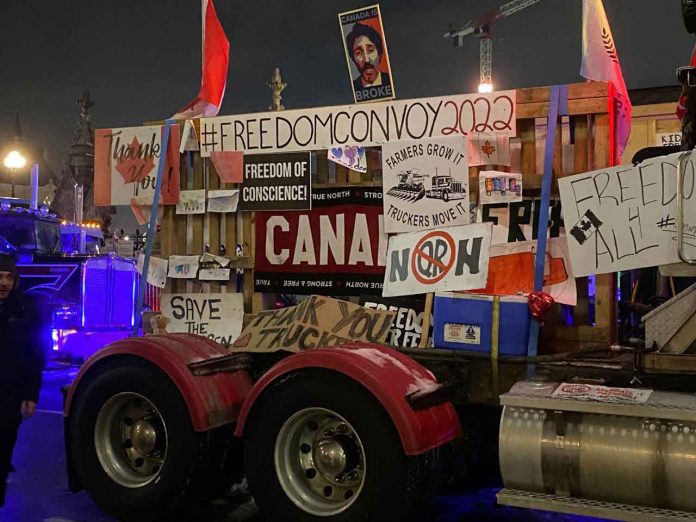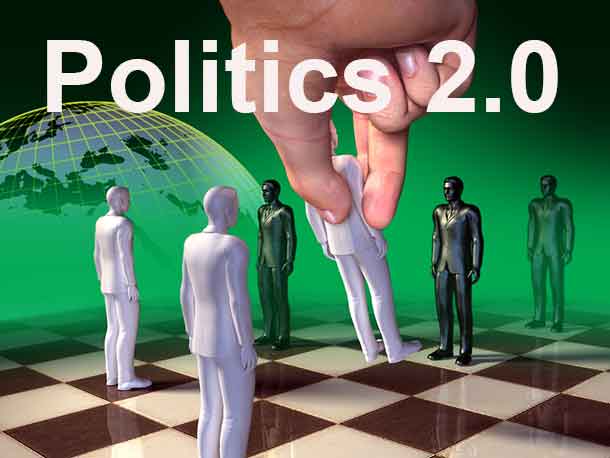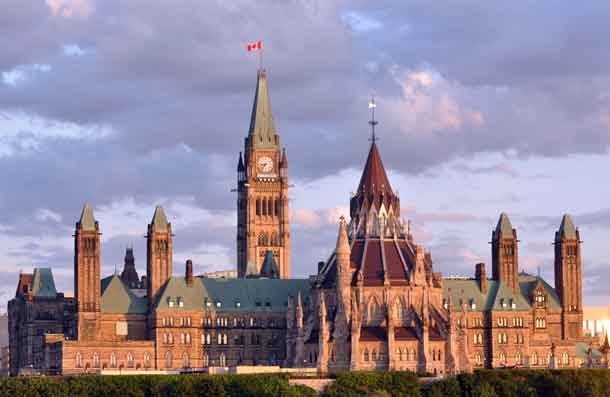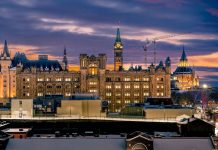OTTAWA – POLITICS – Nathaniel (Nate) Erskine-Smith is the Member of Parliament for Beaches-East York.
Erskine-Smith sits on the Standing Committee on Industry, Science and Technology. He also occupies an executive role on the committee of the Canadian Group of the Inter-Parliamentary Union (IPU) as a past president.
The federal Liberal Party made the vote on the Emergencies Act a confidence motion in the House of Commons. The measure was passed by the minority Liberal Government with the support of the New Democrats.
Erskine-Smith’s speech is worth the read:
“The question before us is whether we ought to confirm the government’s emergency declaration pursuant to section 58 of the Emergencies Act.
I’ve really struggled with the answer to that question, and I’ll get to that. But the first question we should all reflect on is a more basic one: how did it even come to this?
Some Conservative colleagues have made the case that we could have ended the illegal blockades if only we ended federal vaccine mandates. A Neville Chamberlain approach to pandemic management.
Appeasing illegality is an affront to the rule of law and we should put public health before politics. Mandates won’t be with us forever and yes we need to re-evaluate their use – but it’s also true that NACI has yet to confirm whether a third dose is properly “a booster dose…or should be considered part of the primary series” – and we should proceed cautiously as we lift measures that have helped to save lives.
Of course, people are tired of pandemic rules. I was furious when Ontario schools closed to in-person learning in January, yet again. Protest is to be expected, and everyone has the right to peaceful protest. But that right does not extend to blocking highways and bridges. It doesn’t extend to the intimidation, harassment, threats, and the endless and deafening noise we’ve seen in our national capital.
These are crimes and they are quite obviously crimes.
We can’t paint every protester with the same brush. But we can judge people by the company they keep. And we should never platform the language of treason, medical experiments, the Nuremberg Code, or support for white supremacy – all of which we saw on our democracy’s doorstep.
My genuine plea to those listening – to those who dislike the Prime Minister, who dislike public health measures, to those who sit in the Conservative caucus especially – just remember that democracies are fragile. Encouraging lawlessness and emboldening anti-government, anti-democratic voices does a disservice to our country, no matter how much hatred you have for your opponents.
If you don’t stop fanning the flames, I’m not certain we’ll be able to put out the fire.
And reflecting on my own side of the House, if we are fearful of polarization then we ought to be especially careful not to contribute to it ourselves.
We are each sent here to represent our constituents, of course, but our obligations extend beyond any parochial interest: we are the trustees of our democracy, the rule of law, civil liberties, and peace, order, and good government.
The illegal blockades represented an attack on these core ideas.
The greatest criticism of how the blockades were removed is that they were not removed more quickly. The failure to enforce the law in Ottawa, the acquiescence to occupation, emboldened similar blockades across the country. Emerson, Coutts, the Ambassador Bridge.
Against a failed municipal and provincial response, a strong federal response was warranted.
So I suffer no sympathy for those who shut down our border crossings and inflicted harm on the residents of Ottawa.
But, in the interest of disappointing everyone in my audience, I do have concerns with the invocation of the Emergencies Act in the circumstances.
One constituent I trust a great deal wrote to me that “extraordinary times call for extraordinary measures.” She’s unquestionably right.
But the law also remains the law, so let’s turn to it for a moment.
Section 16 of the Act defines a public order emergency as an “emergency that arises from threats to the security of Canada and that is so serious as to be a national emergency.” The shoe arguably fits with this general definition in mind, but the Act goes on to define two terms with great specificity.
First, and again in keeping with section 16, “threats to the security of Canada” has the meaning assigned by section 2 of the Canadian Security Intelligence Service Act. In turning to that Act, we see four possible meanings:
Espionage
Foreign influenced activities
Activities akin to terrorism
The violent overthrow of the government
These are incredibly high standards.In the OIC, the government relies on activities akin to terrorism. Or as the Minister of Justice said in the House: “We took measures that had been applied to terrorism and applied them to other illegal activity.”
The specific section requires there be “activities in support of the threat or use of acts of serious violence against persons or property for the purpose of achieving a political, religious or ideological objective.”
It’s obvious enough that the latter element is met, as warped as the ideological objectives may be. But have there been threats or acts of serious violence that amount to a national emergency?
We know that dangerous and extremist elements are embedded within these protests and blockades. In Coutts, for example, we saw conspiracy to commit murder charges, with two of the accused connected to a far-right extremist group. We also saw the police seize a cache of guns and body armour. In Ottawa, we saw major intimidation of local residents, and threats against the police if they enforced the law. As a parliamentarian, I’m not privy to all of the information in the hands of the executive, and there may well be even more dangerous and coordinated elements at play.
But it also strikes me that these serious threats are ancillary to the blockades, and it is the blockades that constituted the emergency.
A national emergency after all is also a defined term within the Act. It means an “urgent and critical situation of a temporary nature that” either seriously endangers the lives, health or safety of Canadians and is beyond the capacity and authority of a province to deal with it” or “seriously threatens Canada’s ability to preserve its sovereignty, security and territorial integrity.” There’s an additional requirement that no other federal law be sufficient to meet the emergency as well.
It is frustrating that the government has not clearly articulated which ground it relies on here, and it appears they’d like to rely on both.
When we look at the illegal blockades, and the negative impact they wrought on so many lives, there’s a fair argument that they meet the definition of a national emergency, so long as we understand capacity to mean both whether a province could act in theory as well as the reality of their action.
But again, it is the blockades at issue. When we look at the threats of serious violence, the violence that itself must constitute the national emergency at issue, it’s unclear how the definition is met at all.
To meet the Act’s requirements, it’s apparent that we need to re-interpret serious violence to persons or property to mean economic harm. I’m often in support of large and liberal interpretations of the law, but I’m not convinced we want economic harm to trigger the Act, unless we’d be comfortable with the Act being used in other instances of economic harm – the most recent one in memory being the railway blockades in solidarity with the Wet’suwet’en.
This is all, perhaps, too lawyerly, too technical an objection. Other levels of government had failed to act or acted too slowly, legal gaps certainly exist in addressing foreign funding and influence operations, crowdfunding for illegal domestic activities, and the emergency measures seem to have worked.
It’s also true that I don’t have all of the intelligence information that the executive has.
My answer is a simple one, and I know many will find it inadequate, but contorting the application of the law in order to defend the rule of law is not a position I find comfort in.
Expert Wesley Wark wrote recently that the Emergencies Act was unusable because of the high threshold in section 2 of the CSIS Act. But he subsequently came around to the idea of shoehorning the law to fit, because of his perception of the nature of the threat and the missing response from other levels of government.
Expert Leah West recently wrote: “As someone who fervently believes in the rule of law, I’m desolated by what we’ve witnessed this month: a failure to enforce the law by 2 levels of government created a crisis that the 3rd had to contort the law to end.” A fair summation.
Now, whatever one thinks of the legal contortion – and the ends may well justify the means and the courts will weigh in on the law – let’s return to the role of Parliament.
In the coming months we will need to address the shortcomings in the laws, perhaps to better protect critical infrastructure, and most certainly to better follow the money of foreign influence operations and crowdfunding for illegal activities.
But with proper due process. Assuming the threshold question is met here, it is not at all clear to me that the government continues to need the ability to freeze bank accounts without due process, if it ever did. Usefulness and effectiveness are very different standards as compared with necessity and proportionality.
Now, where does it leave us for tonight’s vote on the invocation of the Emergencies Act and section 58?
Putting aside my concerns around the threshold or due process, the effect of section 58 is that a yay vote extends emergency measures, while a nay vote simply revokes the powers as of the day of the negative vote. A nay vote need not mean impugning the actions of the government over the last week.
Whatever one thinks of the necessity and proportionality of the emergency powers at the time they were invoked, whatever one thinks of the threshold that triggers the Act in the first place, the question before us is whether the powers remain necessary and proportionate to the circumstances today.
I appreciate the federal leadership over the last week. And this is not the War Measures Act, as this particular legislation highlights the role of the Charter and provides for a significant amount of independent and parliamentary scrutiny. But I’m skeptical that the strict legal test was met for the Act’s invocation, and I’m not convinced that the emergency measures should continue to exist beyond today.
I would vote accordingly, but for the fact it is now a confidence vote. The disagreement I’ve expressed here does not amount to non-confidence, and I have no interest in an election at this time.”






